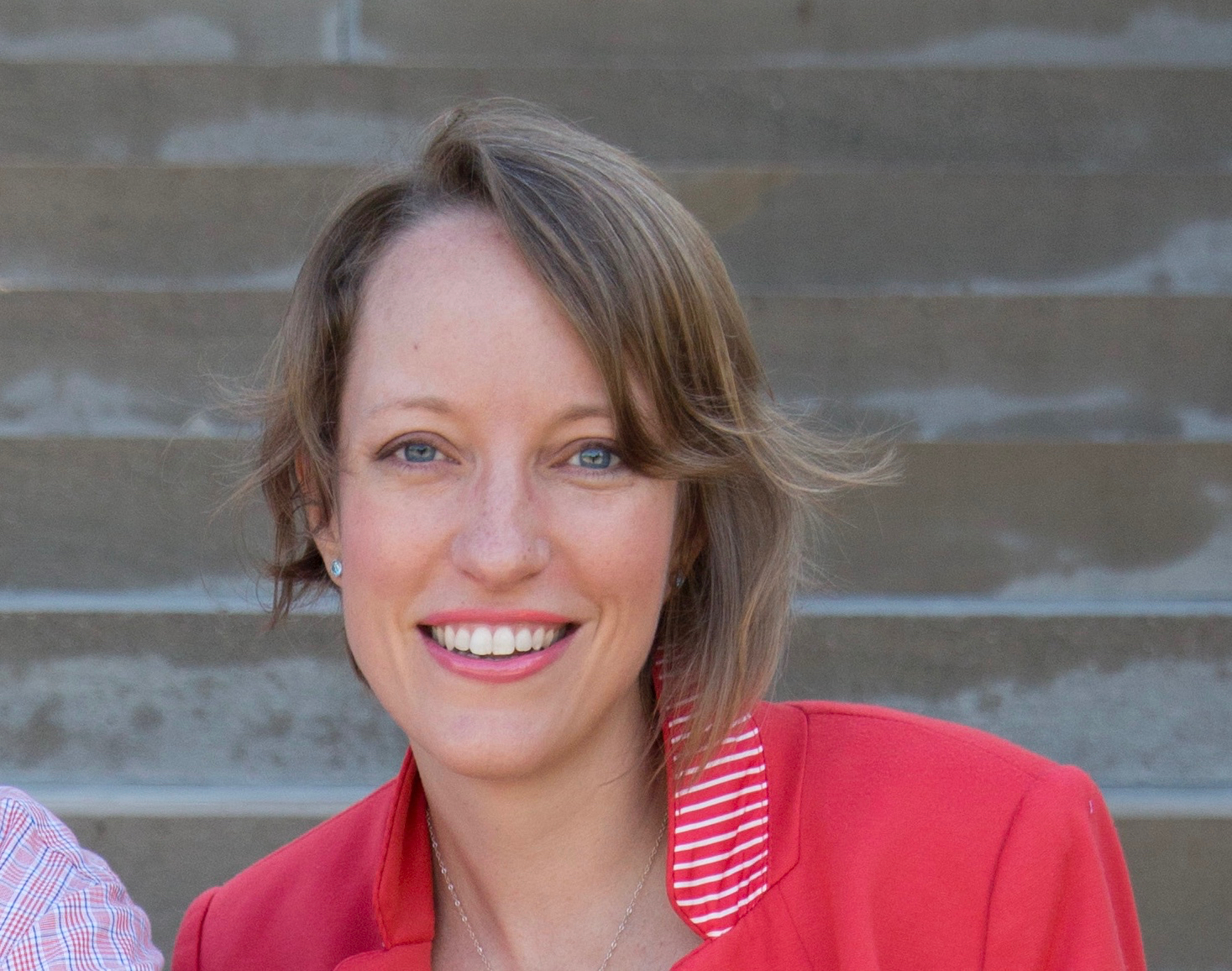Rebecca Best, assistant professor of political science at the University of Missouri-Kansas City, was one of seven awarded a Carrie Chapman Catt Prize for research on Women and Politics from the Carrie Chapman Catt Center for Women and Politics at Iowa State University. Best is also an associate faculty member of the UMKC Women, Gender and Sexuality Studies Program.
Best’s research study, “Gendered Reintegration of Veterans and Political Representation of Women in the United States,” will examine whether there are gender differences in how certain types of reintegration experiences influence a veteran’s interest in and willingness to vote, run for office or engage in activism. The study will also explore whether factors such as marital status and dependent children have a gendered effect on the willingness of veterans to engage in politics. The award, valued at $2,000, will be used to fund a survey of military veterans, at least 40% of whom will be women.
We spoke to Best about her research on women and politics.
What got you interested in researching women’s military service?
Several years ago, I went to Fort Leavenworth to give a presentation on women in rebel groups. Through that visit, I got connected with Kyleanne Hunter, a doctoral candidate at the University of Denver who had previously served as a fighter pilot in the Marine Corps. We had similar ideas about why women engaged in political violence, in that we both believed that women’s reasoning was not fundamentally different from that of men, though their circumstances and the options available to them might be different. We started studying veteran women because it turns out to be much easier to survey and interview military veterans than to interview women in rebel groups (though scholars like Mia Bloom and Angie Nichols among others have been doing excellent work interviewing former rebel women).
What do you hope happens as a result of your research?
Primarily my research goals are to better understand social science phenomena, but I also think that there are often important policy implications of social science research. With this project I am interested in better understanding how gender creates unique challenges for veterans reintegrating into society. I hope that a better understanding of these challenges will contribute to the development or programs and support networks designed to ease the transition out of military service. I also hope that this research can call attention to the contributions of the many women who have served and are serving in the United States military – including political scientists like Dr. Ky Hunter, Dr. Angie Nichols, and Dr. Theresa Schroeder. Finally, I hope that we can get a better sense of the causes of the gender gap in political representation and the types of policies that might help to further reduce this gap.
Tell us about the research this award will help with?
This award will help me to fund a survey of veterans of the United States military (both male and female). The purpose of the study is both to understand the gendering of reintegration experiences and how different reintegration experiences influence the willingness of veterans to run for office. This project builds on work by Jennifer Lawless and Richard Fox who find that an important cause of the gender gap in political representation is that women are less likely to run for office – for a variety of reasons including concerns about their own electability, family concerns and not being recruited to run. Specifically, Lawless and Fox surveyed men and women from several backgrounds that are common among lawmakers (law, education, entrepreneurship and political activism). The money from the Catt prize will allow me to extend this work to military veterans, tailoring the survey to experiences of veterans.
Who are the women who influence your work the most?
I have been lucky to be surrounded by supportive women here at UMKC and in my field of political science. Within my department, Beth Vonnahme, Debra Leiter and Mona Lyne have all been important mentors, sounding boards for new ideas and friends. There are many women doing exciting work in political science and international relations right now – and more than I can name here have impacted my own work. A few influential women include Cynthia Enloe, whose work on women, gender and international relations is both a lot of fun to read and incredibly insightful; Mary Caprioli, whose work evaluates links between gender inequality and armed conflict; Barbara Walter who uses strategic theory to resolve puzzles surrounding civil conflict resolution; Kelly Kadera who both consistently promotes other women in conflict studies and publishes innovative research on interstate conflict as well as women and gender in international relations; Carla Martinez Machain who studies arms transfers, military deployments, and air strikes, in addition to being an excellent mentor and friend for other women in political science; and Jakana Thomas, Alexis Henshaw, and Kanesha Bond, who have all published really interesting empirical evaluations of women in rebel groups.
How do you influence others?
The most impactful part of my job is teaching UMKC students. In doing that, I hope to help students see the relevance of academic work to both public policy and their own lives. For example, in my conflict resolution class students read academic literature on negotiating strategies and we discuss examples of implementing these strategies both in larger scale political negotiations (like peace processes) and in negotiations over salary and benefits. Similarly, I ask my students to consider how the theories we discuss in class are reflected in the stories they read in the news from negotiations with the Taliban to protests in Iran. I’ve published some of my own thoughts on these and other issues in public forums such as the Washington Post’s Monkey Cage, the Conversation and Political Violence @ a Glance.

